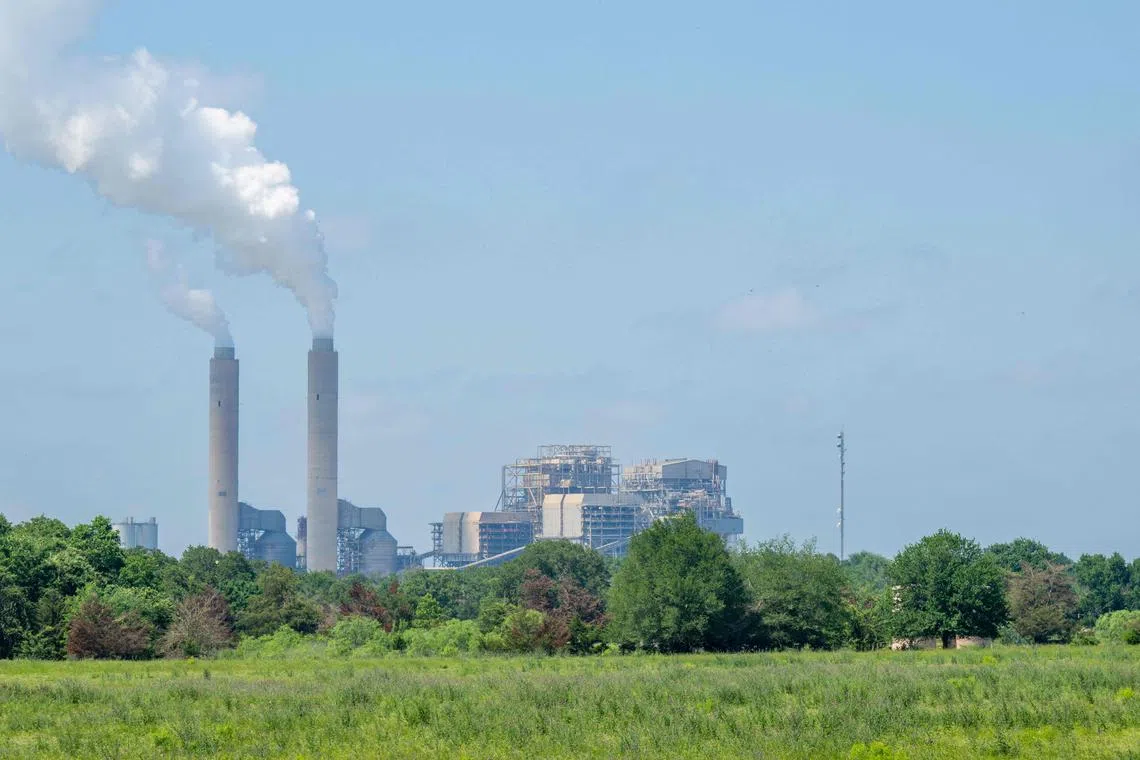Trump return could see climate progress ‘unravelled’, says former US lawmaker
Sign up now: Get ST's newsletters delivered to your inbox

Addressing climate change and sustainability as a business is at stake, though companies face challenges to actually cutting their emissions and environmental impact.
PHOTO: AFP
Follow topic:
SEATTLE – Former US interior secretary Sally Jewell said the climate stakes of the election in November “could not be higher”, and that she is “really afraid for the future of our planet” should former president Donald Trump return to the White House.
“To go backwards is not acceptable,” Ms Jewell told attendees at the Bloomberg Green Festival in Seattle on July 11. “I can’t say enough about the importance of continuing the progress that has been made over the last three years” on climate change, she added, especially the passage of the Bipartisan Infrastructure Law Inflation Reduction Act.
Ms Jewell, who led the Interior Department under former president Barack Obama from 2013 to 2017, said a second Trump administration would pose more peril than his first did, when some of his attempted regulation changes met roadblocks in the courts.
This time around, there will be “more people in the judiciary that may look unfavourably on the kinds of laws that have given us clean air and clean water”, Ms Jewell said, adding that she worried about climate progress “coming unravelled”.
Asked by Bloomberg Green reporter Zahra Hirji if US President Joe Biden was the best person to beat Trump, Ms Jewell said she did not know. Polls showing Mr Biden trailing Trump – and not Mr Biden’s age – are what have her most concerned. But the continuation of Mr Biden’s policies is the most critical thing, she emphasised.
“If Biden or another Democrat is elected, and the kinds of people that are working in government that understand these issues are able to continue to do the work they do, we are fine. If the election is lost, we are not fine.”
Now the global board treasurer for The Nature Conservancy, and previously the president and chief executive officer of outdoors retailer Recreational Equipment (REI), Ms Jewell also spoke about the importance of government and business working together to meet environmental goals. Businesses hate chaos but do not mind playing by consistent rules, she said.
Addressing climate change and sustainability as a business “is table stakes today”, she said, though companies face challenges to actually cutting their emissions and environmental impact. In her days leading REI, she recalled there was more of a competitive disadvantage to making sustainable choices. When REI installed solar panels at stores, for example, it initially did so only in states with tax incentives to limit the expense. Now, the low cost of panels has made that moot.
One of the biggest hurdles to getting to net zero is that consumers still are not paying for putting carbon in the atmosphere, Ms Jewell said. Economic incentives are needed: “Until we start shining a spotlight on the true impact, I don’t think people are going to begin to change their behaviours.”
If decarbonisation requires work by governments and businesses, it also depends on effective activism, Ms Jewell noted. She called herself a “fan” of Greta Thunberg and even of the activists who repeatedly sued her during her time running Interior.
“We are all part of an ecosystem that needs to work together,” she said. “We need to pull all those levers now, because it’s a five-alarm fire.” BLOOMBERG

